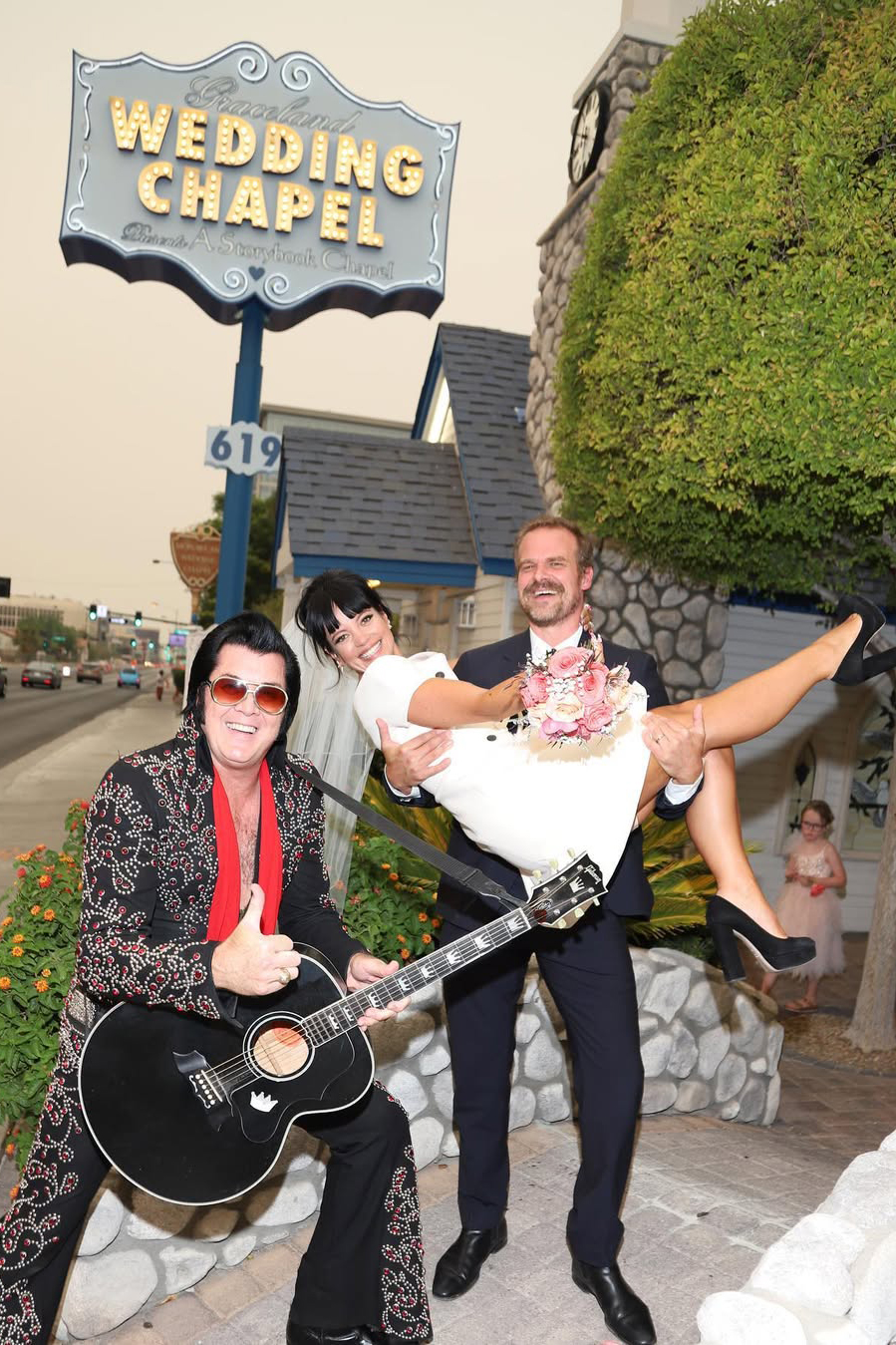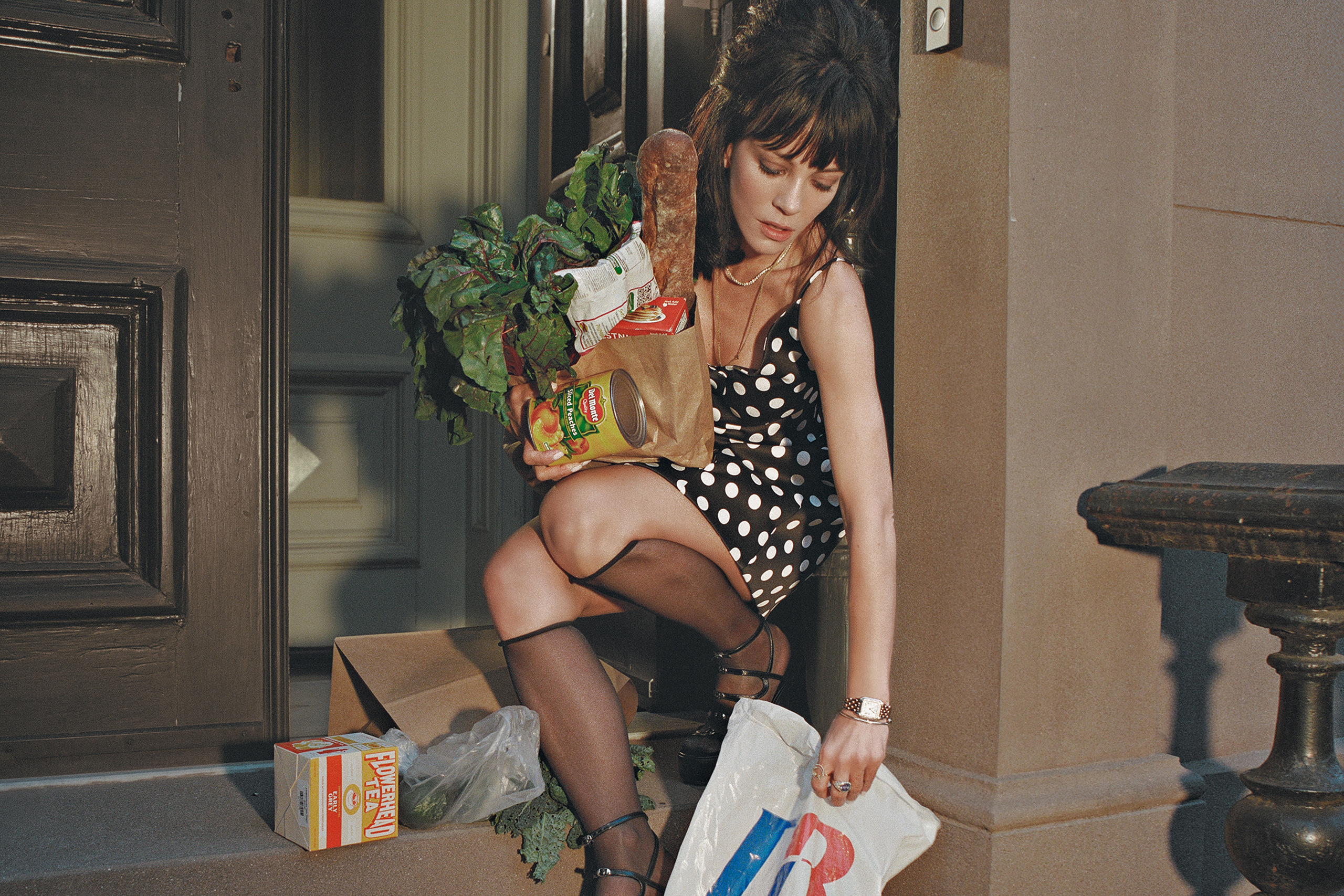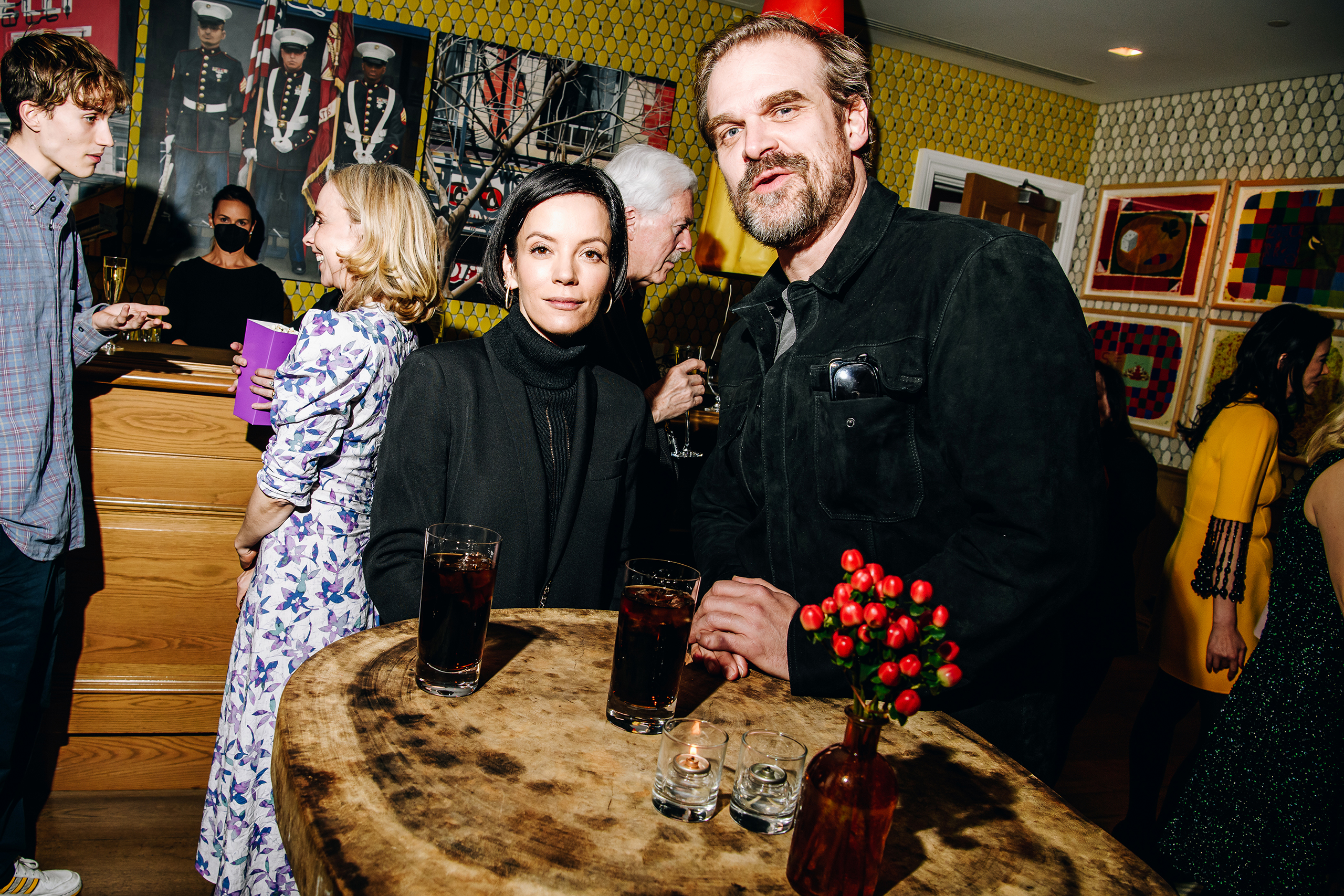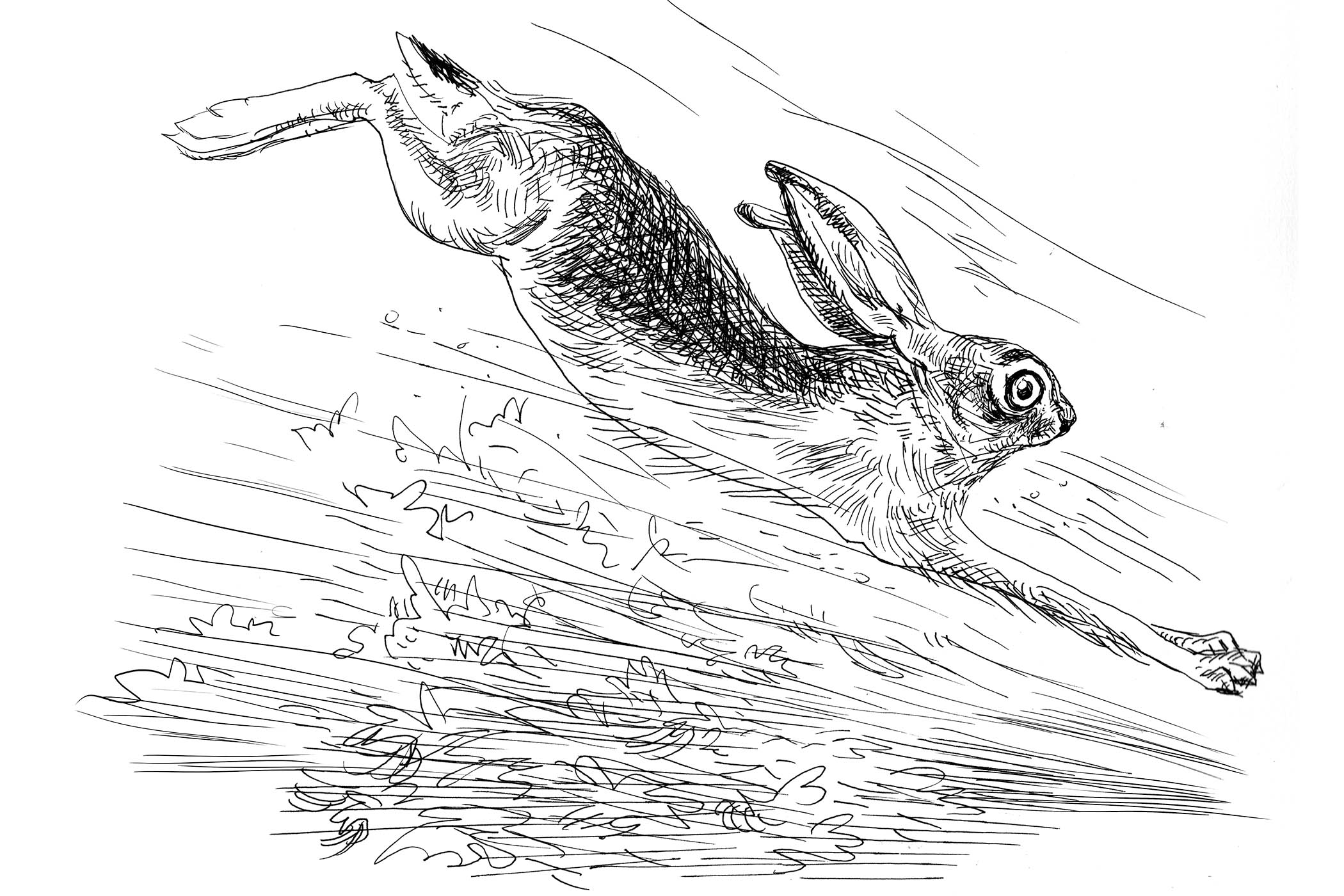My name is Sophie Heawood and I am addicted to Lily Allen’s new album. And I’m not alone – women across the country have spent a week devouring West End Girl, with its 14 catchy but devastating pop songs about the disintegration of Allen’s marriage. Social media and WhatsApp groups are alight with discussion, sharing rage and heartache as they listen to Allen’s lyrical revelations of how her ex-husband, the actor David Harbour, allegedly wanted their marriage to be “open” so he could sleep with other people, and the sexual chaos that ensued.
That it has become the most streamed album in the UK this week, and with its streaming figures doubling since release (when an album often peaks on day one), speaks to a cultural breakthrough moment.
But the album’s success also rests on the fact that as well as being catchy, it tells the story of a crisis in modern relationships that our culture hasn’t yet reckoned with: are we moving away from monogamy and into a more complex constellation of arrangements, honest or not?
“If it has to happen, baby, do you want to know?” the husband on the album asks his wife.
“What a line,” she sings in response, “what a fucking line.”
If Halloween costumes are a measure of cultural cache, Allen is on fire. Released just days earlier, the album inspired fans to create party costumes as scenes and moments from it: the cult internet star Amelia Dimoldenberg went to a party wearing a sheriff costume (a nod to Harbour’s character in Stranger Things) while listening to Allen on her iPhone.
Elsewhere, people dressed as the husband with a Duane Reade bag full of condoms and sex toys – the “pussy palace” where Harbour allegedly met with other women; and his anonymous girlfriend, named by Allen as Madeline. The internet has been having its fun.
Non-monogamous relationships might not be so new to queer culture, enlightened Californians or, say, the aristocracy, where people have always been expected to have lovers as well as spouses. But for mainstream British society they are a recent and fast-growing development, with many couples in the past few years announcing that their marriages are now accepting other applicants.
Related articles:
Straight people on dating apps can now tick boxes to indicate they’re looking for ENM – ethical non-monogamy
Straight people on dating apps can now tick boxes to indicate they’re looking for ENM – ethical non-monogamy
Straight people on dating apps can now tick boxes that say things like “ENM” to indicate they’re looking for ethical non-monogamy – indeed, they might even already be in a relationship but looking for more sex.
Culturally, we are becoming more monogamish – to use a term coined by the sex and relationships writer Dan Savage. In 2022, the dating app Hinge released data to show that one in five Hinge users “would consider” trying out an open relationship – one in 10 had already engaged in one. In the hit TV show Succession, one of the main characters, Shiv, tells her husband that she wants to see other people. He’s taken by surprise – they got married mere hours earlier. But she’s the powerful one in their relationship and he can’t find a way to say no.
Newsletters
Choose the newsletters you want to receive
View more
For information about how The Observer protects your data, read our Privacy Policy
Earlier this year, Unicorn ran at the Garrick theatre, starring Stephen Mangan and Nicola Walker, about a fiftysomething couple seeking to open up their marriage, inviting a 28-year-old woman into their bedroom.

Allen and Harbour married in a Vegas chapel in 2020
Historically, marriage was a form of ownership – a woman moving from her father’s to her husband’s household, almost as a property transfer. The economics of this have changed, but somewhere in Allen’s rage you can feel the idea of it lingering. It seems as if the ever so contemporary promise of an open marriage, in socially progressive Brooklyn, has somehow left her trapped in the house her husband bought her while he’s allegedly off sowing his wild oats. So far, so traditional. “I tried to be your modern wife,” she sings on Relapse, “but the child in me protests.”
When she tries to play the same game he does, using the apps to find men, her age and status as a mother make her a less appealing prospect to new people. “I’m a mum to teenage children,” she sings. “Does that sound like fun to you?” It’s an up-to-date retelling of a very old problem. Has marriage – for women – always been a trap, open or not?
Queer relationships have always sat somewhere outside of these economic and social structures, which is perhaps why this lingering sense of ownership might not be felt in the same way and open relationships have taken hold more easily. As a married gay man said to me of his non-monogamy: “We make it work, but when my straight friends do it, it always seems to go wrong.”
That’s definitely not true for all “open” straight couples, some having successfully established clear boundaries, communication and an evolved attitude to jealousy as well as, most crucially, the genuine desire of both people to live like this. It’s just that the risk is always that one partner is more into it than the other, as Allen’s album lays bare. The word “ethical” can end up doing a lot of heavy lifting – or hiding. Allen has sounded the alarm: beware all ye who unwittingly enter here.

Of course, it also raises questions of privacy. Many commentators have said that she shouldn’t have written about this – she has children, she shouldn’t do this to her ex or even to the women he was allegedly sleeping with, one of whom (Madeline) has now been pursued by the tabloids to expose her true identity. Remember “Becky with the good hair” from Beyoncé’s album Lemonade – the apparent paramour of Jay Z? She too was the subject of a forensic investigation to find out who she was.
But as someone who was quite possibly once the victim of phone-hacking, this is Allen phone hacking her own life. As the writer Anne Lamott says in a quote beloved of memoirists everywhere: “You own everything that happened to you. Tell your stories. If people wanted you to write warmly about them, they should have behaved better.”
Is it infidelity if you tell someone you’re going to be unfaithful?
Is it infidelity if you tell someone you’re going to be unfaithful?
In the story told throughout Allen’s album, an open relationship was apparently thrust on the wife as something that “had to happen” for her husband to remain happy. It wasn’t her choice, and thus Allen investigates the grey area that this puts it in. Is it infidelity if you tell someone you’re going to be unfaithful? Is this really a form of emotional honesty or just a cool way to avoid dealing with some bigger problems? Can you call it cheating if you say you’re going to cheat? Many Allen fans have posted on social media that they, too, think they are just “being played” by partners who no longer promise sexual exclusivity.
Why this record speaks to so many fans so deeply is not because we have all been with her ex-husband – impressive though his body count appears to be – but because we have wondered, like her, what the hell is going on in the dating scene.
Pop music of late has been particularly in love with its own coolness, with Charli xcx’s Brat record creating what became known as a Brat summer. Pop culture’s job is to celebrate partying and youth, freedom and beauty, drinking and getting high and getting laid. Allen was that girl once too. But now she has moved pop’s narrative on, leading the culture from a hot girl summer into a single mum winter.
Fans who first noticed her 20 years ago feel that Allen has grown up on this journey with them, as we all try to make our relationships and families hold together while losing our traditional forms of glue. Indeed, having multiple sexual partners has now been normalised to such an extent that Allen feels she has to blame her anger about it on her inner child.
But the huge popularity of her album suggests that millions of us think her outer adult has every right to be furious too.
Photograph by Nina Westervelt/Variety, Getty


